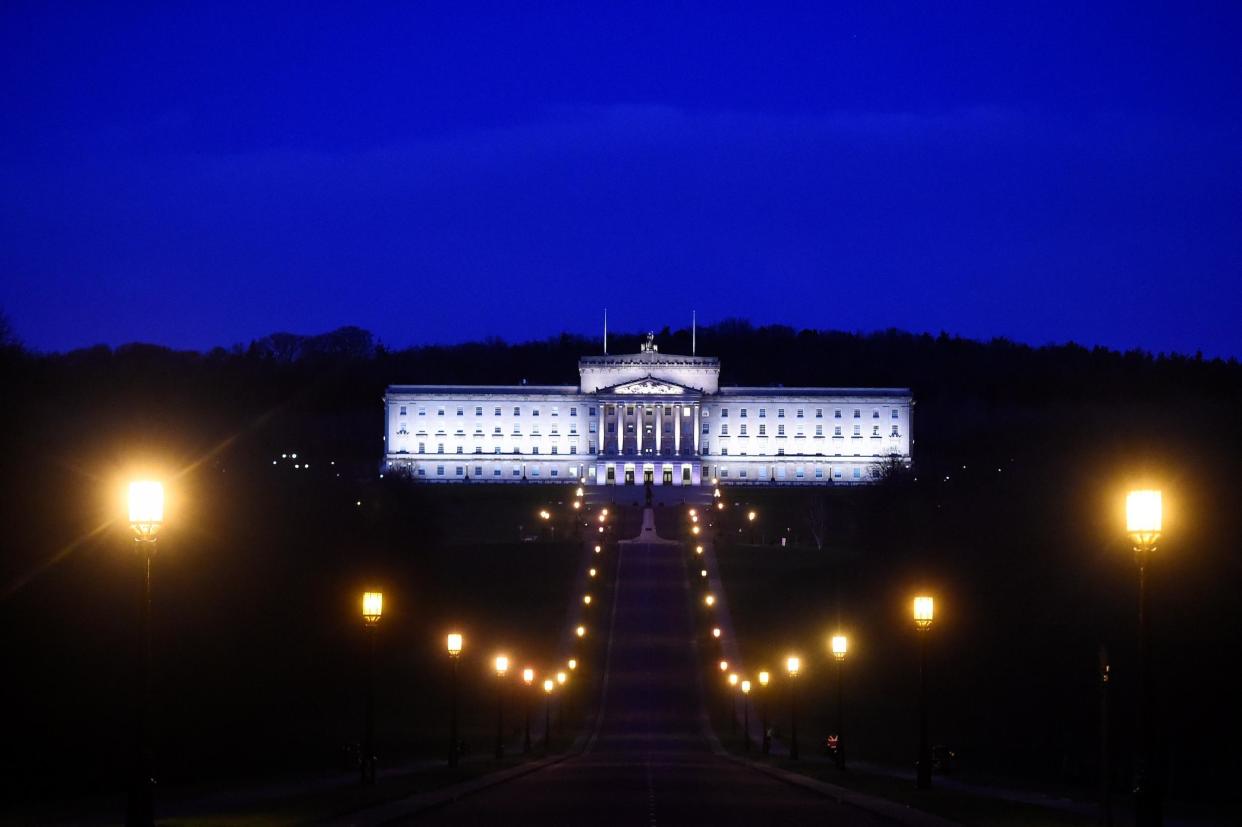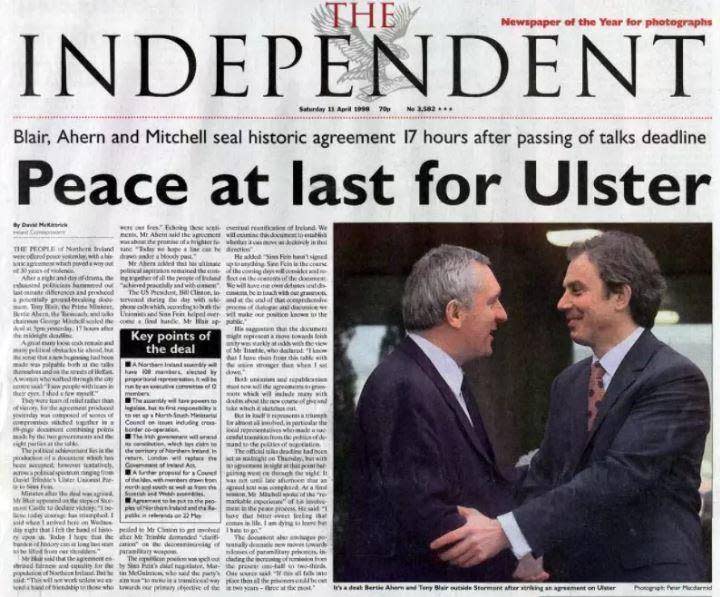20 years since the Good Friday Agreement was signed, the DUP and Sinn Fein are making a mockery of it

Twenty years ago. I was five years old, running around my back garden pretending I was a fireman in an outfit my mother stitched for me. Northern Ireland was not at peace, but a collection of politicians were labouring hard to bring about what would come to be known as the Good Friday Agreement.
“Forgiveness is a virtue of the brave”, according to Indira Gandhi, and that’s why I consider the majority of NI to be an exceptional congregation – we put faith in our future, and had to pay the price of forgiving the unforgivable from our past, so that we could all progress forward. We worked hard so that my wee bubble, zooming about our street’s cul de sac in a plastic go-kart, need never be burst.
Back then we benefited from political giants: John Hume from nationalism and David Trimble from unionism. At the time, Trimble’s party boasted 10 MPs, as the DUP do now. The deal he returned with was necessarily a compromise and, as such, a political gamble. He had the courage to continue, even though it lost him the support of six of his MPs, three of whom defected to another party.
When put to the country, with 81 per cent turnout, 71 per cent of the people of Northern Ireland voted in favour of the peace deal. It was a courageous compromise.
This year marks that momentous agreement’s 20th anniversary, and what a way the DUP and Sinn Fein have decided to celebrate it – by bitterly slamming our chances of renewed devolution into a wall. Neither is capable of the political leadership or courage exemplified 20 years ago. It’s so savagely despairing and embarrassing.
In a direct parallel to 1998, the whispers through that ever-noisy grapevine is that a compromise had been agreed between the DUP and Sinn Fein late last week. Sinn Fein claim they implored the DUP to agree to it as soon as possible, rather than consulting their wider party – but the DUP refused.
The rumour is, just like with Trimble, that it was the MPs who clambered for no deal. The difference here was that Arlene Foster conceded to their demands. Supposedly, DUP politicians were inundated with distressed and furious correspondence demanding that there be no Irish Language Act at all.
Within a few days, the deal had collapsed. Sinn Fein and the DUP are now engaged in a public squabble about whether or not they even had a draft agreement before it all fell apart. The fact we have no idea who is right, and probably never will, highlights the lack of transparency.
Extraordinarily, all this feared Irish Language Act was going to do was officially recognise Irish, introduce an Irish language commissioner and remove the ban on Irish in the courts. I am at a complete loss at what the perceived threat of this was.
But as the Belfast Telegraph editorial rightly pointed out, this standoff is entirely the fruit of Sinn Fein and DUP’s “toxic exchanges during last year’s elections”. By keeping the talks completely secret, no ground had been prepared for compromise.
So what happens next? The painful reality is we have no idea.
Most likely, Westminster will need to pass Northern Ireland’s budget, as we’ve been driving on fumes for almost two years. And by god will that budget be austere. Then what next? Westminster continues to say a deal can be done, and no doubt it can – but with the most recent collapse, the DUP are now perceived to be unwilling, given that they refused to accept the most basic compromises.
At the same time, Sinn Fein can’t compromise further on what appears to have been a surprisingly measured final position. So we are genuinely looking down the barrel of direct rule – not just a national embarrassment but something that would be economically ruinous and functionally disastrous.
Yet again, the most basic governing of ourselves has been stalled by unmovable division which continues to permeate our politics.

I refuse to accept that that division is anything but a crack in the mirror as opposed to a cut across the face it reflects. The vast majority of people in Northern Ireland aren’t enveloped by sectarianism. But the problem is that recent voting patterns invigorate a sense of distrust – nationalists look aghast at the DUP’s mountain of votes and unionists are equally distressed that Sinn Fein still garners such favour across the country. This unease at a perceived “other” feeds into a deep held insecurity that ultimately results in people hardening their votes.
Despite this, the vast majority of us spend every day unthinkingly transcending that nationalist/unionist division, which everyone else assumes we are constantly and ceaselessly anchored by. But then, on every election day, we are moored back down to those depths, so we can place a placid cross by the name of some fool who lives and breathes by that tribal distinction. Our nation is sullied by this sectarian voting, which does not take into account our own wellbeing.
Politics in Northern Ireland in the last half-decade has had a fruitless yet never ceasing sense to it, like Sisyphus being paid like a footballer to push his bolder up that petty wee hill. It needn’t be – that boulder is a building block in the right hands. But we keep passing it to Sisyphus, who, laboured with no imagination – and us, never expectant of better – allow something of potential great use to become useless.
In that lies the only avenue out of this ever growing maze we find ourselves in – a year ago after local elections I wrote about how I cried at the results, because I knew that this collapse we are now enduring was inevitable. Until we, the electorate, recognise the consequences of voting out of habit, fear and distrust, stable devolution won’t return – and we’ll send up a flare, clear as day for the outside world to see, that we are incapable of governing ourselves. We would be turning our backs on the inheritance of 1998.

 Yahoo News
Yahoo News 
